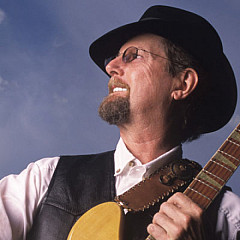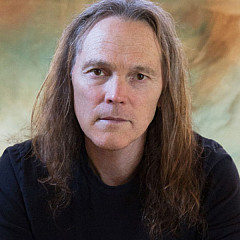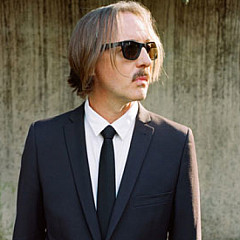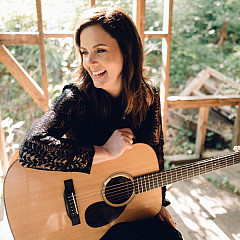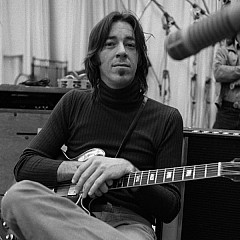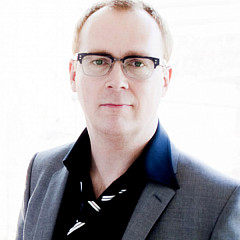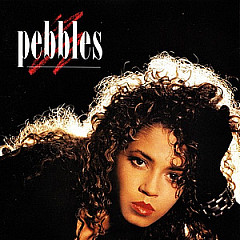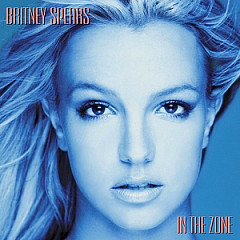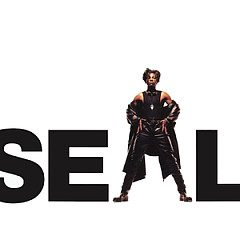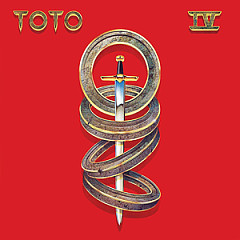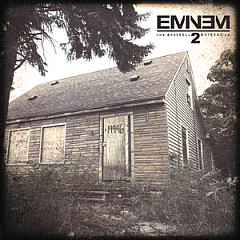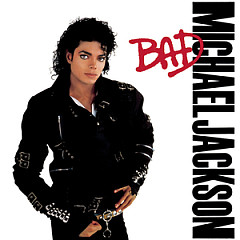
When Madison McFerrin entered Berklee College of Music, she was taken aback when some there expected her to be some sort of instant virtuoso. After all, she's the daughter of famed jazz vocalist Bobby McFerrin. Students and faculty quickly realized McFerrin was a talented musician just trying to find her artistic voice. A talent that has already collaborated with everyone from jazz pianist Chick Corea to funk legend George Clinton.
True greatness is a process, not some sort of instantaneous event, and McFerrin is well on her way to making a unique name for herself. Based in Brooklyn, McFerrin creates beautifully eclectic music, so there just might be something genetic about that family name of hers. Her debut EP is called Finding Foundations: Vol I.
Madison McFerrin: No, not particularly. I guess, subconsciously, in the sense that there's always singing around the house. It's interesting because the majority of his music doesn't involve words.
Songfacts: Yeah, he scats.
Madison: So the songwriting element, he's more of an improvisor, more than anything else. I probably learned my harmonic preferences and harmonization from him more so than my songwriting. But I think when he does write songs, he writes great ones.
Songfacts: So, who would you say are your primary songwriting influences? Are there songwriters that you've learned from, or patterned yourself after?
Madison: I didn't pattern myself after anybody. But influencers, for sure, were The Beatles, Stevie Wonder, Erykah Badu. Those three were major influences when it comes to the songwriting process itself.
Madison: "No Time to Lose" is definitely one. Especially the melody of it I'm really proud of. It's the jazziest melody that I have in any of my songs, and that wasn't in any way intentional. I love when I write a song and it happens really organically. It's not forced at all. And that was a song of that nature, where I came home from being outside and I wrote the chords on the piano. I remember I started it slow and then I thought, "I don't think I can play this and sing at the same time," so I put it on the loop pedal, and I wrote the whole thing in about an hour.
Songfacts: What does it mean to you?
Madison: The song? I think it's just that you don't have time to lose wasting on people that don't deserve your time. I've experienced that a lot.
 "No Time to Lose" isn't written about anybody in particular because, at the moment, I am in a very loving, committed relationship. But it was definitely something I've experienced in the past many times. Not just in relationships, but former friends. "I'm doing my own thing now, and I'm not going to waste my time on you."
"No Time to Lose" isn't written about anybody in particular because, at the moment, I am in a very loving, committed relationship. But it was definitely something I've experienced in the past many times. Not just in relationships, but former friends. "I'm doing my own thing now, and I'm not going to waste my time on you."Songfacts: Let's talk about a few other songs.
Madison: Another song, "Insane," is going to be on Volume 2. That's my favorite loop to play. That's my favorite loop to build. That's another one I wrote on the piano first, and it has a lot of major seconds in there, so there are a lot of cluster chords.
And that's another one that had happened super organically. I was actually by myself at my parents' place and trapped in a snowstorm. I was, like, "I guess I could write some music or something."
That's a song I really enjoy and I'm excited to record it and listen to it because I can only listen to it when I play it. So, I'm excited to sit back and listen to it.
Songfacts: It sounds like you like the production end of things, too.
Madison: Yeah, I do.
Songfacts: Where does that come from? Madison: My brother Taylor's a producer. And also, I was in a duo called Binary Sol for a second, and the producer [Jarred Barnes, aka ARKTKT], when we would write music together, I was always very involved in, not so much the sounds themselves, but arrangements and what pieces should go where. I'm a fan of that and being able to orchestrate the whole thing together.
Songfacts: Do you think you could ever become a producer yourself?
Madison: Yeah, I hope so. That could be in the cards.
Songfacts: Okay. Let's go to a third song.
Madison: There was a song I wrote when I was in a band called Cosmodrome in college called "Two Cents," and it was the first time I was intentionally about, "Let me just write about nothing." Not have a distinct storyline, and more so something you could interpret on your own as whatever you want it to be.
Songfacts: Was that challenging?
I thought it came out really well and it was also my favorite song to play on the piano - it had a lot of different interesting parts. Compositionally, it was a favorite.
Songfacts: In two cases, circumstances caused you to write. Are you a disciplined writer? Do you sit down and say, "I need to write," or do you need something to force you into doing it?
Madison: It's a little bit of both. It depends. I'm a disciplined writer in the sense that I write in my journal pretty much every day. Even if it's just, like, a sentence. Just to get that energy flowing. Because I do find that I write my best songs when I'm writing consistently. Just writing in general, not just writing music. But then there are times when I do sit down and write a song. I do find that it's easier when it's just something that happens. To sit down and write a song, it's a different mindset you have to get yourself into to really be committed to that in a way where it feels organic and not forced.
Songfacts: It's interesting because I talk to Nashville writers, and they're a different breed altogether. And they can actually say, "I have a writing date. I'm going to set this time. I'm going to meet with this person. We're going to write songs." And they do it. But they're more writers than performers. And I think that when you're a performer, it's more about personal expression, so there's more that goes into it.
So, do the lyrics come first, or the music?
Madison: Chords come first, melody second, lyrics last. I think I've written, like, one song where the lyrics came first.
Songfacts: Do you ever write with other people?
Madison: I have, but mostly when I was in college. For, like, songwriting classes and stuff like that.
Madison: Uh...
Songfacts: Not always?
Madison: Not always. I had a particularly interesting time there, just based upon the fact that I'm Bobby McFerrin's daughter. So, that was a little different. You go to college and want to be anonymous and discover yourself. I come to school and over 50 percent of the people already know who I am. Not only know who I am, but are expecting me to be, like, this virtuoso of sorts. And at the time, I knew that I wanted to perform. I had written songs since I was a little kid.
Songfacts: That's a lot of pressure.
Madison: It was. And it was something I was not prepared for at that scale. While I did grow up in a musical family, I was always raised around other types of people. I was not always in situations where people were fawning over my father. I was unaware and naïve to the fact that my father was such an incredible influence globally, especially for people in my age group.
I would find that people would know my father if they were a little older. It was the first time I was around people of my age group who were fawning over the fact that I was Bobby McFerrin's daughter. So, that made it difficult. I'm really grateful for the people that I met there and the connections that I made. Eighteen-year-old me wouldn't have been able to go anywhere else. Twenty-two-year-old me would have liked a little more liberal arts, a little more anonymity.
Songfacts: Did your dad ever give you the talk, "You don't want to get into this business"?
Madison: No. My parents were always very supportive. I decided I wanted to be a singer when I was five, so they only supported me and my brothers. My oldest brother's a music producer [Taylor McFerrin]. My middle brother [Jevon McFerrin] is currently in Hamilton on Broadway, so we're all doing our things.
October 6, 2017
More at madisonmcferrin.com
Photos: Lissy Laricchia
More Song Writing

